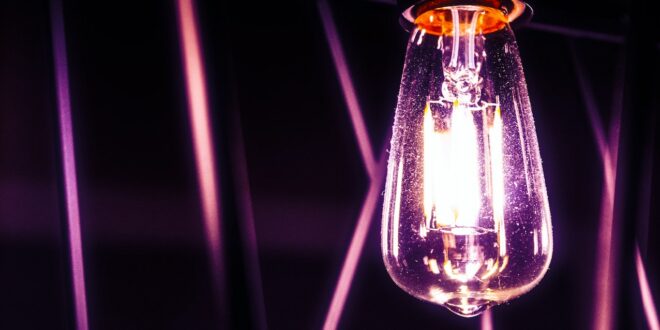Whether it’s life or our career, change is a constant. How do we shine bright at the various stages of our life and tap into our potential when the very definition of it is changing all the time?
It’s a concept I refer to as brilliance which, in the dictionary, is defined as many things: cheerful, happy, lively, optimistic, bright, clear, light, positive, smart, intelligent, sharp, talented, inspired, skilful, excellent.
When we’re brilliant we shine and so light is an intrinsic part of this concept of being brilliant. In fact, it feels light to live this way and when we’re closer to burnout we know it’s a heavy load to bear, a darker place to be.
It’s why I love the lightbulb metaphor here and for me it also represents energy, which is key to us sustaining our brilliance. When we’re at our best we have more energy and, like a light bulb, we always shine brighter when we have more energy. We also know what happens when we leave the light on too long, it dulls and eventually goes out.
Yet busyness and burnout is an epidemic in our society. We attach our sense of self-worth to being busy. Being busy means we’re valued, needed and successful. As a result, we’ve de-prioritised balance, rest and downtime. We’ve been taught not to see these things as productive, when really they should be our foundation. Balance, rest and downtime are where it all starts. Without them, we end up burning out.
When I was in Bhutan, the kingdom famous for measuring Gross National Happiness in place of Gross Domestic Product (GDP), I was surrounded by brilliance, in terms of the light emanating from the people and the priorities their country had. Many of the temples I visited had rooms full of butter lamps; there always seemed to be lights burning bright. It is said in Buddhism light is the knowledge that dispels the darkness of ignorance.
I believe in the concept of doing less to achieve more, slowing down to speed up and putting quality before quantity. This takes us from the ignorance of busyness and burnout to tap into our true potential and be brilliant.
It’s frequently our perspective of time driving the busyness: we have a constant feeling we’re running out of time, so we need to be busy to fit everything in.
Aside from the rhythms of nature (sunrise and sunset and the turning of the seasons), we have created the calendar, the 24-hour day, the clock and the nine-to-five. These human-defined concepts change depending on which country you’re in and what traditions you follow. It’s why the first of January is not the New Year for everyone.
To this extent, time is a made-up concept so the way we view time is in our control. The quantity of time we’re viewing is the same amount, whether we’re looking at hours in the day or hours in our lifetime (regardless of how long it is). We either look at each hour or day as one less, or one more.
Our view of time can be of time opening up or time decreasing, from the starting point to the end: an 80-year lifespan, a 365-day year or the 24 hours we all have in a day. It’s the same block of time we’re taking about: we can choose the lens through which we view it.
If I’m constantly telling myself there are not enough hours in the day, that’s how I’ll feel. Yet we all have the same 24-hour block every day. Every day after we wake up, we can see each hour as either an hour less we have in the day or an hour more.
So how do we move from the destruction of busyness and burnout to tap into our true potential and be brilliant? From the new book, Burnout to Brilliance here are my top tips.
· Mind your busyness – it’s not a badge of honour or a reflection of how valuable you are. It’s a sign you’re not at your best if you’re always busy. Slow down so you can be effective, not busy.
· Notice your language – what are you telling yourself? Do you use the word ‘busy’? What’s your self-talk like and do you have control of your inner critic?
· Prioritise rest and self-care to build your resilience
· Know your triggers when burnout is approaching, audit your energy levels and fuel the tank as necessary. It’s like stopping for fuel on a long journey, it takes time out of the journey but ensures you reach the destination without breaking down.
· Focus on less but better, quality over quantity and reduce the overwhelm in the process
· Master the art of tiny gains and focus on one thing at a time
· Structure your life for success (harness the power of good habits)
· Go easy on yourself – expect realism not perfection!
Article by Jess Stuart
For your chance to win a copy of Jess’s book, click here.









Join the Discussion
Type out your comment here:
You must be logged in to post a comment.